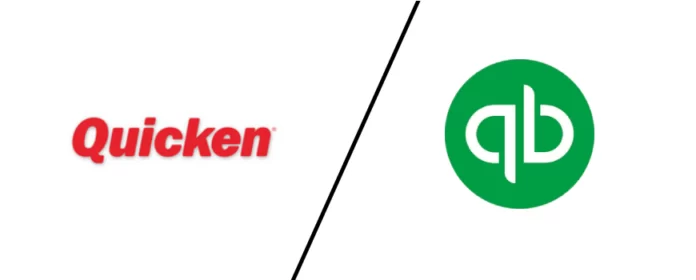Are you a small business owner or an individual looking for the best financial management software? Quicken and QuickBooks are two of the most popular options, but which one is right for you? In this blog post, we’ll compare Quicken vs QuickBooks in terms of functionality, ease of use, pros and cons, and more. By the end of this article, you’ll have a better understanding of each software’s strengths and weaknesses so that you can make an informed decision on which one suits your needs best. So let’s dive into the world of personal finance management!
What is Quicken?
Quicken is a personal finance management software developed by Quicken Inc. and was first released in 1983. It’s designed to help individuals manage their finances, including budgeting, bill payments, investment tracking, and more.
One of the key features of Quicken is its ability to connect with various bank accounts, credit cards, and investment platforms to automatically import transactions into the software. This allows users to easily track all of their financial activity in one place.
Quicken also offers several tools for creating budgets and monitoring spending habits. Users can set goals for savings or specific categories like groceries or entertainment expenses.
Additionally, Quicken provides reports on net worth, cash flow statements and other financial metrics that allow users to better understand where their money is going.
The latest version includes features like mobile apps (iOS/Android), integration with TurboTax® (for tax planning) along with expanded options for small business owners seeking more accounting functionality than what typical personal finance applications provide.
What is QuickBooks?
QuickBooks is a widely used accounting software designed for small and medium-sized businesses. It was developed by Intuit in 1983, making it one of the oldest accounting software on the market. QuickBooks offers various features that make it an ideal choice for managing finances.
One of its main features is its ability to track income and expenses, which allows users to see their financial position at any given time. QuickBooks also offers invoicing tools that allow businesses to create professional-looking invoices and accept payments online.
Another feature that sets QuickBooks apart from other accounting software is its integration with third-party apps such as Paypal, Shopify, and Square. This integration simplifies the process of importing transactions into QuickBooks.
Quickbooks has multiple versions available including simple start for new business owners or self-employed individuals who do not have inventory needs up through Enterprise version which handles large data files (10GB+). Quickbooks is a comprehensive tool suitable for all types of small to mid-sized businesses looking to manage their finances efficiently.
Quicken vs QuickBooks: Functionality
Quicken and QuickBooks are two of the most popular accounting software available in the market today. While Quicken vs QuickBooks both offer a wide range of features to users, there are some key differences in their functionality that can make one more suitable for your business than the other.
Quicken is primarily designed for personal use, with features focused on tracking personal finances and investments. It allows users to manage bank accounts, credit cards, bills, and investments all from one place. Quicken also provides budgeting tools to help keep track of expenses and savings goals.
On the other hand, QuickBooks is geared towards small businesses and offers a broader range of financial management tools. With QuickBooks, you can create invoices, track sales tax payments, manage inventory levels, generate reports regarding cash flow or profit & loss statements among others.
While both programs have similar functions such as tracking income & expense; categorizing transactions; handling payroll taxes; printing checks – they differ based on what they specialize in: Quicken being better suited for individuals while Quickbooks is ideal for small or medium sized businesses with an intent towards growth.
The Pros and Cons of Quicken
Quicken is a personal finance software that has been around since 1983. Over the years, it has evolved into an intuitive and feature-rich application for managing your finances. However, like any other software, Quicken has its pros and cons.
One of the most significant advantages of using Quicken is its ease of use. The interface is straightforward to navigate, making it easy to manage your finances without getting lost in complex menus or features.
Another pro is its budgeting capabilities. With Quicken’s budgeting tools, you can set up a realistic budget based on your income and expenses. It also allows you to track how well you are sticking to that budget throughout the month.
Quicken also offers investment tracking as one of its features. This tool lets you monitor your investments’ performance over time so that you can make informed decisions about buying or selling stocks or mutual funds.
On the downside, one disadvantage of Quicken is that it does not offer automatic transaction categorization in all versions. This means that if you have many transactions per month, categorizing them manually could be tedious and time-consuming.
Another con is the cost associated with using Quicken. While there are free alternatives available online, they do not offer nearly as much functionality as paid software like Quicken does.
While there are some downsides to using Quicken such as cost and manual transaction categorization; however when considering the pros such as ease-of-use and budgeting capabilities then those disadvantages should be weighed carefully against what this financial management solution offers users who want better control over their finances through technology solutions like quicken versus others in space including QuickBooks
The Pros and Cons of QuickBooks
QuickBooks is a popular accounting software that offers a wide range of features to its users. Here are some pros and cons of using QuickBooks:
Pros:
- One of the biggest advantages of QuickBooks is its ability to handle complex financial tasks easily. It can be used for invoicing, billing, payroll management, inventory tracking and more.
- Another advantage is the ease of use. QuickBooks has an intuitive interface that makes it easy even for beginners to learn how to use it effectively.
- QuickBooks also provides excellent customer support through phone, email or chat options. This means you can always get help when you need it.
Cons:
- One downside of QuickBooks is its cost. While there are different pricing plans available depending on your needs, they can still be quite expensive compared to other accounting software options.
- Another disadvantage is limited access for multiple users. Some versions may only allow one user at a time which could pose challenges if more than one person in your organization needs access at the same time.
- Some users have reported experiencing technical glitches such as slow loading times or errors when syncing data between devices.
While there are certainly some drawbacks with using Quickbooks like any other software option out there – most people agree that it’s still an excellent tool overall for managing finances in today’s fast-paced digital world!
Which One is Better for You?
When it comes to choosing between Quicken and QuickBooks, the decision ultimately depends on your specific needs.
If you’re a small business owner or freelancer in need of accounting software that can handle invoicing, billing, and payroll management, then QuickBooks is likely the better choice for you. It offers more advanced features and customization options than Quicken.
On the other hand, if you’re an individual looking for personal finance software to manage your budgeting and investments, then Quicken may be the way to go. Its focus on personal finance makes it easier to track expenses and monitor investment performance.
It’s important to note that while both software programs offer similar features such as tracking income and expenses, they are designed with different audiences in mind. Therefore, it’s essential to consider which program aligns best with your specific financial goals.
Ultimately, take some time to research each option thoroughly before making a decision. Read reviews from other users who have similar needs as yourself so that you can get an idea of what will work best for you.
Quicken vs QuickBooks: Ease of Use
When it comes to ease of use, Quicken vs QuickBooks differ in terms of their user interface and overall functionality. For starters, Quicken is a more basic program that is designed for personal financial management. It has an intuitive layout with easy-to-understand menus and icons. Users can easily navigate through the system without any prior accounting knowledge required.
On the other hand, QuickBooks is a more complex software solution that offers much greater functionality for businesses of all sizes. While its interface may take some time to become accustomed to, it provides users with many features such as invoicing, payroll processing, inventory tracking, and more.
In terms of customization options, both programs offer significant flexibility when it comes to tailoring the software to your unique needs. However, because QuickBooks provides so many additional features beyond basic financial management functions – including tools for human resources management – some users may feel overwhelmed by its complexity.
While both Quicken and QuickBooks are user-friendly solutions that provide individuals or businesses with powerful financial management capabilities — they do differ in their level of complexity based on individual user’s preferences and requirements.
Conclusion
After analyzing the functionality, pros and cons, and ease of use for both Quicken and QuickBooks, it’s clear that these software options are ideal for different purposes.
Quicken is excellent for personal finance management, while QuickBooks has more advanced accounting features suitable for businesses. However, small business owners can still benefit from Quicken’s tools as long as their operation is simple.
Ultimately, your choice between Quicken vs QuickBooks depends on your needs. Take time to consider what you require from a financial tool before making a decision.
Regardless of which one you choose; both provide comprehensive solutions designed to manage finances efficiently. We hope this article has provided valuable insights into the differences between these two popular software options – helping you make an informed decision about which solution is right for you!





